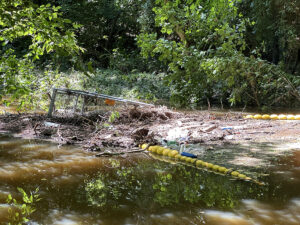News
Forever chemicals: Sound Rivers specialist hunts for PFAS
Environmental, Neuse River Watershed, Sound Rivers, Water Quality
Posted on June 29th, 2023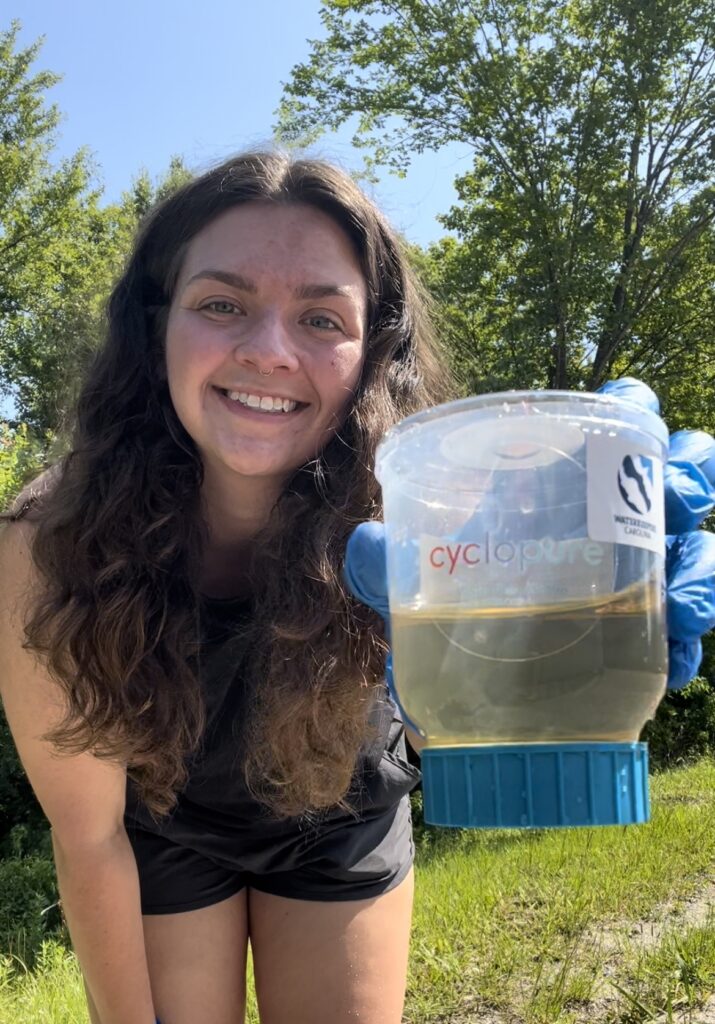
Sound Rivers’ Water Quality Specialist Taylor Register made a return visit to the Croatan National Forest this week — this time searching for PFAS in the water.
“(Neuse Riverkeeper) Sam and I have been working to identify some places in the Neuse watershed that might be hot spots for potential PFAS contamination,” Taylor said.
The location stood out to the Sound Rivers’ experts because parts of the national forest caught fire and burned for several weeks earlier this year.
“With the recent wildfire that affected that area, we are trying to determine if there has been any PFAS contamination from firefighting foam. Our contacts within the Forestry Service have said that no foam was used during their relief efforts, but we wanted to test anyways to see for ourselves,” Taylor said. “Firefighting foams are one of the most significant known sources of PFAS, so it’s definitely worthwhile for us to double check this area for any elevated PFAS results.”
Taylor said general information about PFAS and the collection of PFAS data will be shared with the public via a fact sheet.
“We are hoping this information will be valuable to the community, especially for those who are completely unfamiliar with PFAS and its lasting effects,” Taylor said.
(PFAS are toxic chemical compounds used in products that repel water, grease and stains, as well as firefighting foam and some personal care products. They are known as “forever chemicals” because they do not break down easily and can exist in your body and the environment for decades. According to the Centers for Disease Control, more than 97% of the population has PFAS in their bodies.)
Related News
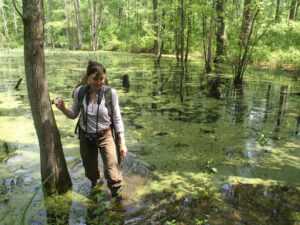
Public hearing will determine the fate of many NC wetlands
June 26th 2025

Clayton gets first official trash-trap cleanout
June 25th 2025
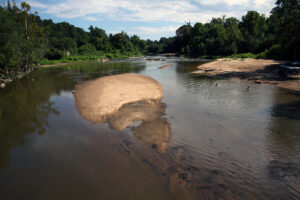
Bill passed by NC House threatens public health, environment
June 25th 2025
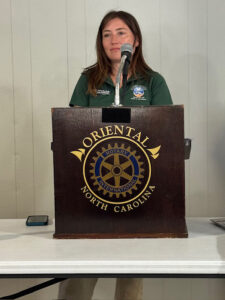
Riverkeeper talks programs with Oriental Rotary Club
June 25th 2025

Riverkeeper, intern scout Smithfield trash trap locations
June 25th 2025
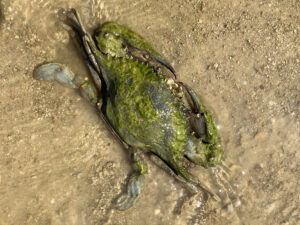
Fish kill reported on the Neuse
June 19th 2025
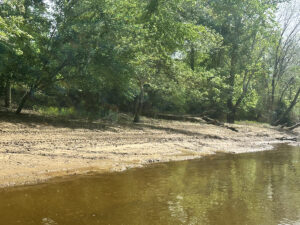
Riverkeeper meets with ATV park attorney
June 19th 2025

Riverkeeper samples scene of Rocky Mount sewer spills
June 19th 2025
